Olympic downhill title defines career for serial winner Svindal
He may have 36 World Cup titles to his name, he may be a five-time World Championship winner, he may even have claimed super-G gold at Vancouver 2010, but the day that Alpine skier Aksel Lund Svindal was crowned Olympic downhill champion one year ago stands out above all else.
“It does give you a rush when people announce you as Olympic downhill champion,” laughed the man who flew down PyeongChang 2018’s most testing slope in one minute, 40.25 seconds.
“In general I don’t think you should list which [titles] are the coolest because you are up against the best in the world. But there are some that have a little bit of an extra flair behind them, and for us downhill is our Formula One and the Olympics are the biggest thing we do.
“So when you put those two together the Olympic downhill gold has that little bit extra that you maybe don’t get from all the other golds.”
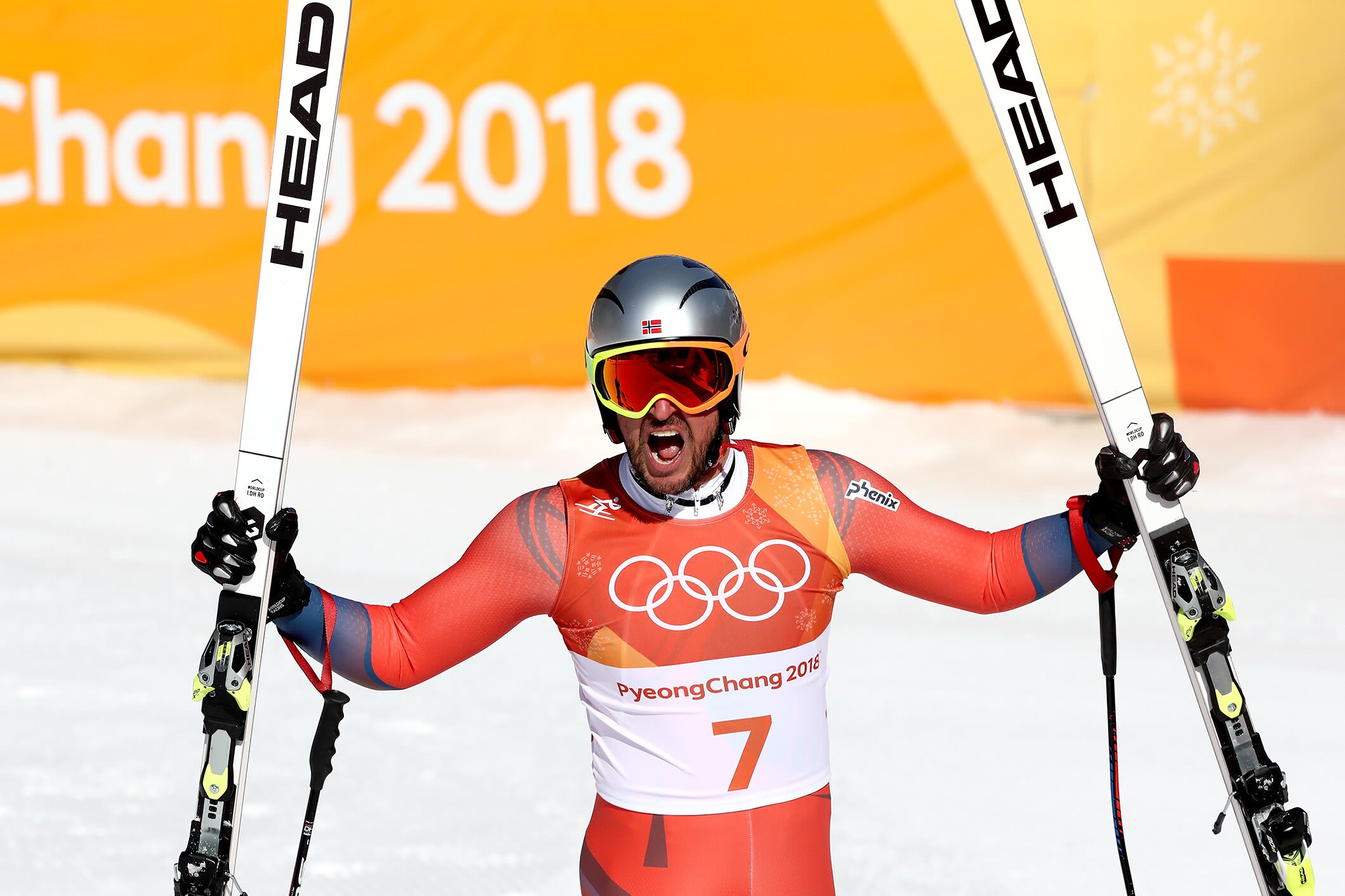
The Norwegian is a colossal figure in modern ski racing but, standing atop the training slopes in PyeongChang last February, aged 35, he knew he was facing his final chance to grab one of the biggest prizes in sport. The fact that high winds forced organisers to delay the blue riband event by four days did not help the veteran’s nerves. It did, however, meet with his approval.
“I felt they did a great job with the preparations, it was a very smart move and very good in terms of fairness – instead of trying to pull it off on a windy day – to push it back far enough to when they knew they had a good window,” he said.
“It came together, the surface was good and no wind and sunshine. Everything was there for a fair competition and I think that is really important when you have the Olympics just every fourth year.”
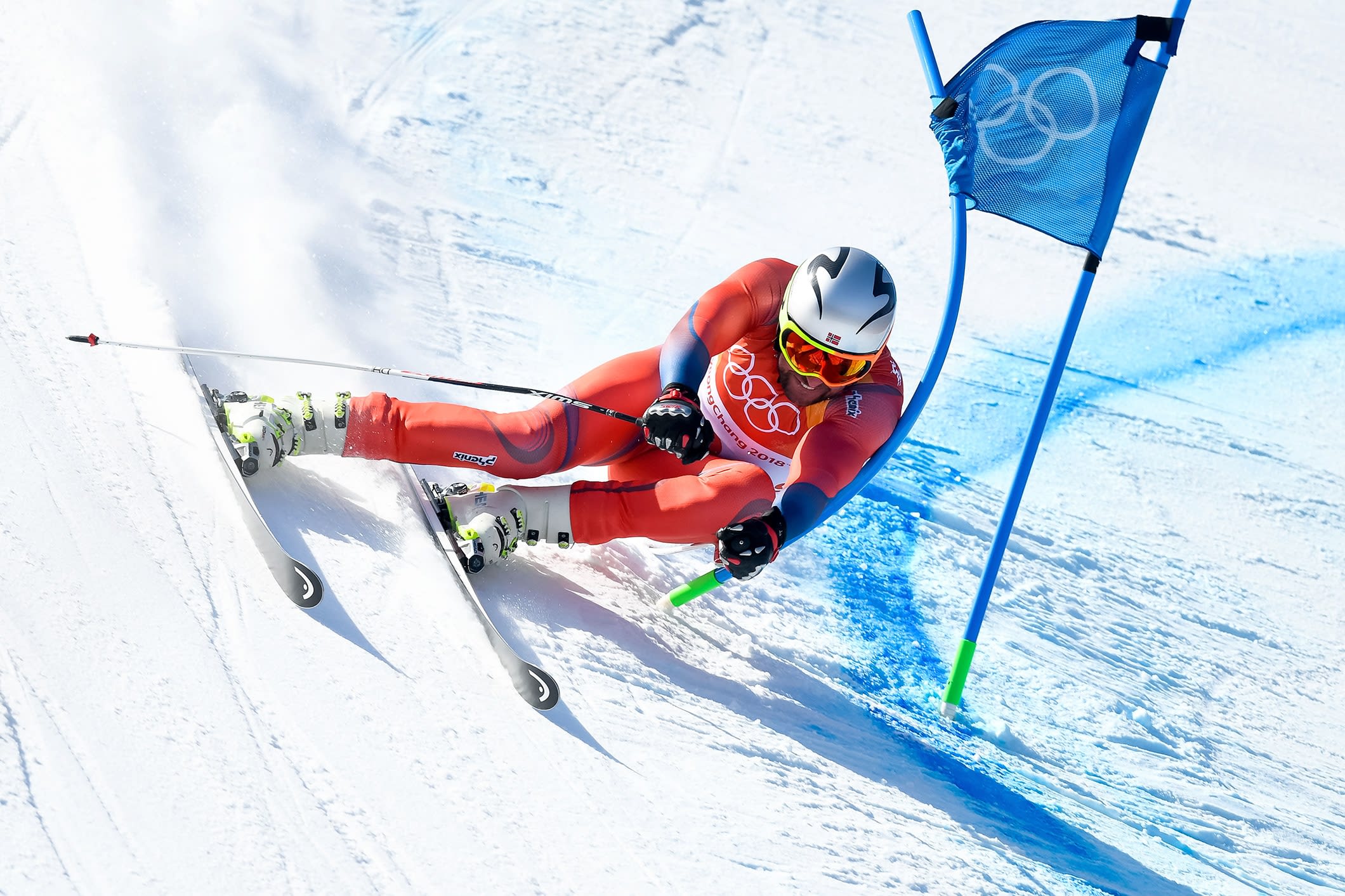
A total of 55 of the world finest male downhill racers lined up in the sunshine to take on a course designed by 1972 Olympic downhill champion Bernhard Russi. The prevailing view was that the Swiss man had laid out a reasonably short and fairly undemanding track but one which required smooth, error-free skiing. The four days of wind had polished the slopes shiny-fast and with dry, gritty snow everything pointed towards a strong, powerful racer. Step forward, 1.89m-tall Svindal.
“I just remember at the start knowing that this was my one shot and then pushing as hard as I could,” the 2007 and 2013 downhill world champion recalled.
By the time he was pushing out of the start gate, Beat Feuz, Switzerland’s 2017 downhill world champion and a skier famed for never making mistakes, was the man to catch.
“I actually made two mistakes on the top – we only tried the top part once in training and I was injured when they had the test event there,” Svindal said.
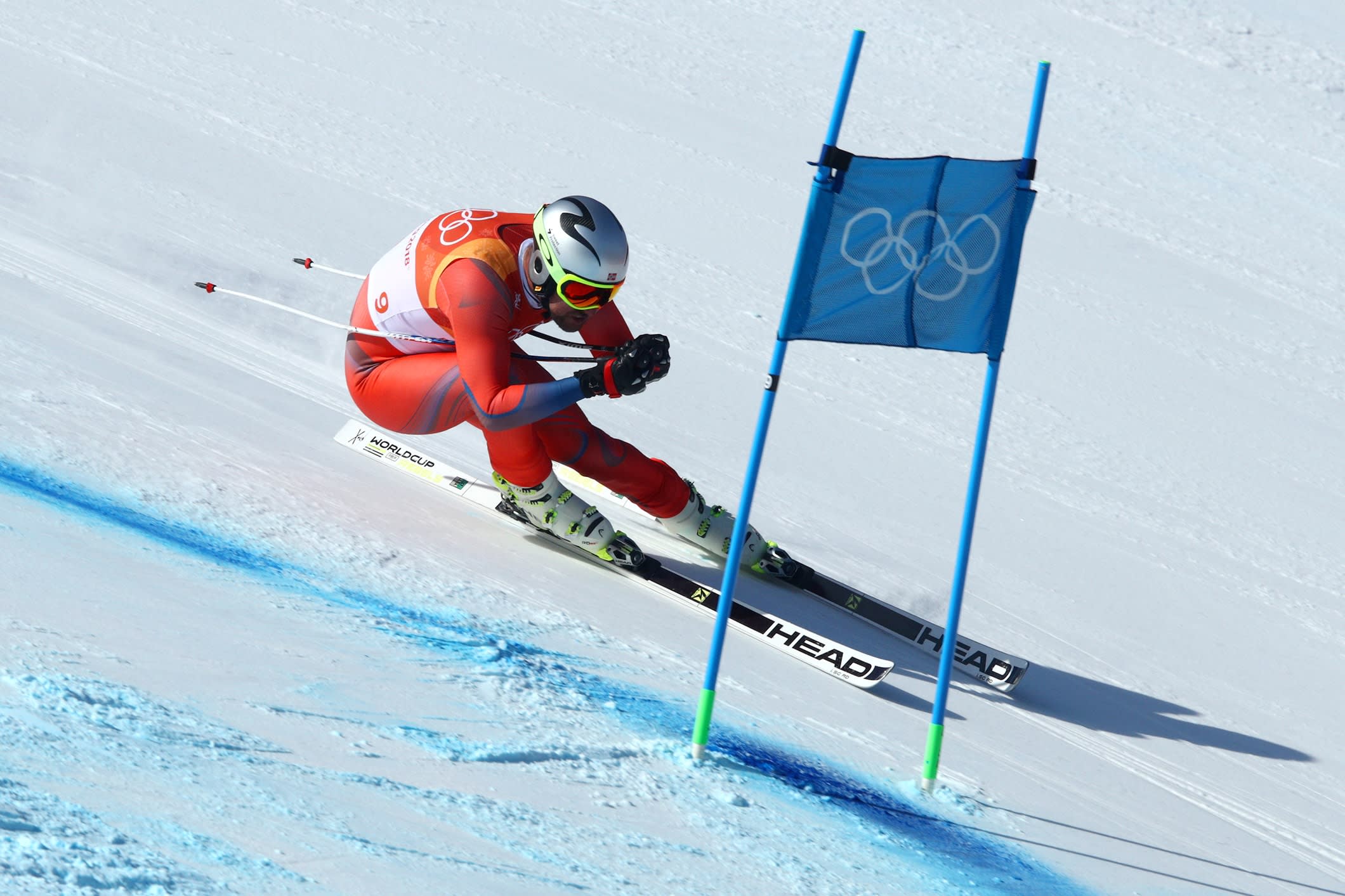
“But then I had a really good middle section and bottom section. I remember executing my plan perfectly on the middle section and then taking a bit of a risk on the bottom section and that risk came off and I was able to carry a lot of speed.”
Svindal finished 0.18 seconds clear of Feuz. But teammate Kjetil Jansrud was still to come. The Sochi 2014 downhill bronze medallist and super-G gold medal-winner flew down the tricky top half, attacking from the off as is his style. While he began to falter in the bottom section, just at the point where Svindal’s legendary strength had kicked in, it looked like Jansrud would still nick it until a costly wobble on the final jump. It was a Norwegian one-two, with the elder statesman on top by 0.12 seconds.
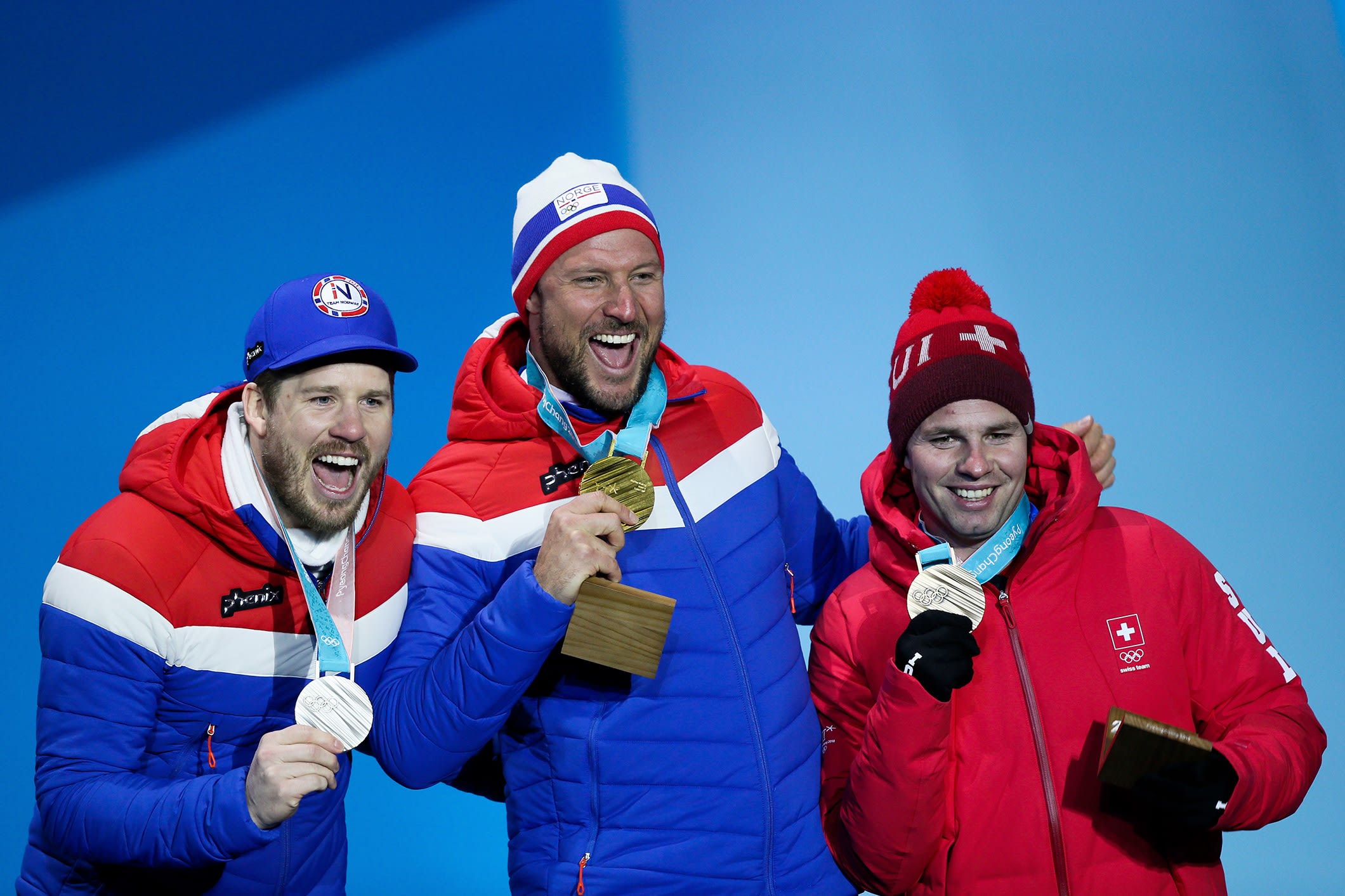
“If you look at my splits you can see I definitely lost on the top, I thought I had maybe lost too much,” Svindal said. “But thanks to a really fast middle and bottom section I was able to pull it off.”
It was the sixth time in seven Olympic Games that Norway’s finest had found themselves on the men’s downhill podium but the first ever occasion one of them had actually topped it. For the history maker, the sense of camaraderie around him was a defining factor.
“It’s not a team sport for those two minutes that we actually compete but I think it is a team sport in everything else,” he said. “We discussed at the start our game plan and then we were hanging out in the finish area obviously. It was definitely a great day for the team.”
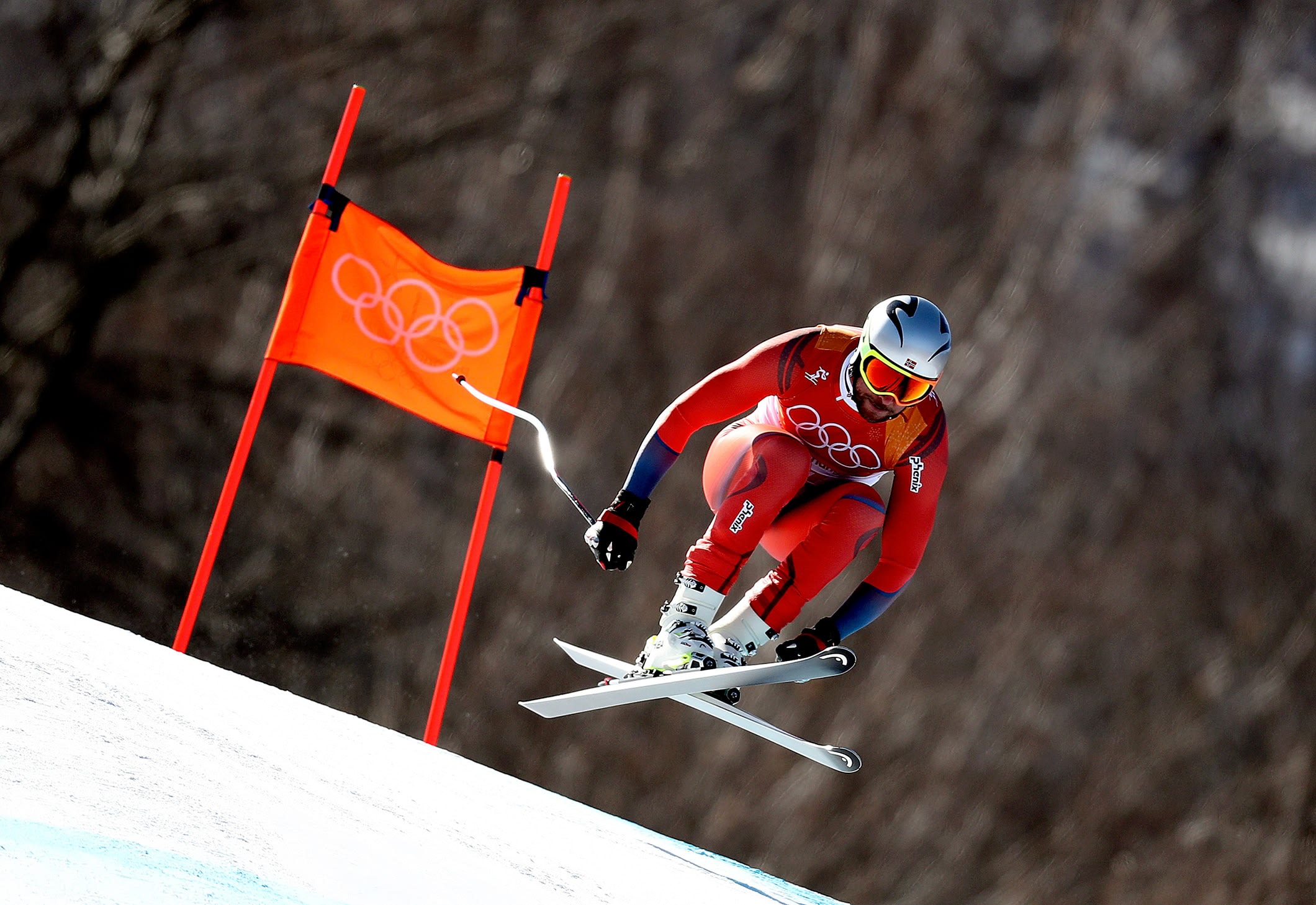
The next day they did it all again, with Jansrud finishing third in the super-G behind Feuz and Matthias Mayer, the Austrian adding super-G gold to the downhill title he won in Sochi four years previously. On a fast, demanding course Svindal made too many errors and finished fifth. But the big man had taken the one he really wanted, the one they all want.
“It’s definitely not to be taken for granted that you are able to be fit, be fast, have the margins on your side and for everything to come together on that one day,” he said. “All the tension that builds up, the nerves, you really want it and then when you are able to get it done on that one special day that is something you remember for the rest of your life.”